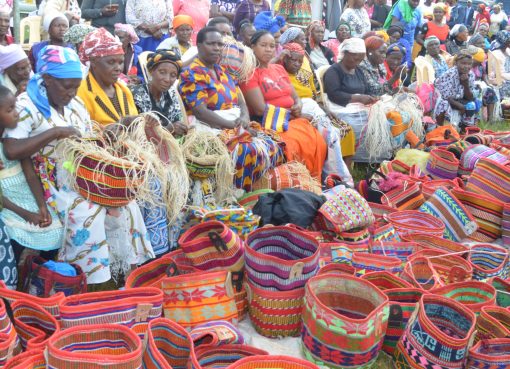Leaders from across Kenya’s governance and finance sectors convened at the 2nd Own Source Revenue (OSR) Growth Conference 2025 at a Hotel in Nairobi to explore innovative strategies aimed at enhancing county revenue collection for sustainable development.
The Conference, organized in partnership with the private sector, brought together key government officials, policymakers, and stakeholders in the devolution space and was officially launched, Wednesday, by the State Department for Develution Principal Secretary (PS), Ms. Teresia Mbaika.
Ms. Mbaika re-affirmed President William Ruto’s unwavering commitment to enhancing County financial autonomy under the Bottom-Up Economic Transformation Agenda (BETA).
“The President has underscored the need to enhance county governments’ revenue-generating capacities, enabling them to deliver essential services efficiently and sustainably,” stated Ms. Mbaika.
The PS emphasized the importance of devolution in driving local economic growth, but noted that counties need financial independence, to reach their full potential.
She explained that most county budgets still depend heavily on Equitable Share transfers from the National government, which make up about 80 percent of their revenue, while Own Source Revenue (OSR) contributes only 13 percent.
“Own Source Revenue is very critical in matters of development and implementation of county budgets,” she stated.
Ms. Mbaika noted that a 2022 study by the Commission on Revenue Allocation (CRA) found that counties could generate up to Sh260.6 billion annually from sources such as land rates, business permits, parking fees, and market charges.
However, revenue collection was affected by inefficiencies, unrealistic targets, and weak enforcement, with most counties collecting only 65 percent of their projected OSR.
“We must re-think our approach to revenue collection, counties including Mombasa, Murang’a, Homa Bay, and Nakuru, have demonstrated that OSR growth is possible through effective policies, digitization, and strategic enforcement,” the PS emphasized.
Ms. Mbaika noted that the Conference was to highlight four key strategies to help counties improve revenue collection.
Counties were encouraged to automate revenue collection by adopting digital platforms and cashless payment systems, to reduce leakages and improve efficiency.
She also urged counties to strengthen enforcement and compliance, which would make a good move to minimize revenue losses through clear policies and strict implementation.
Counties were further advised to set realistic revenue targets to align projections with actual collections, which would improve budget performance and reduce pending bills.
Ms. Mbaika stressed on the importance of intergovernmental collaboration and urged counties to work closely with the National Treasury, CRA, KRA, and development partners to adopt best practices in revenue administration.
The Principal Secretary recalled that in the 2023/2024 Financial Year, counties collectively improved their OSR collections, achieving 72.8 percent of the Sh80.94 billion target.
“A total of 10 counties surpassed their revenue goals. In the First Quarter of the 2024/2025 Financial Year, counties recorded Sh12.68 billion in collections, marking a 24 percent increase compared to the previous year. These positive trends highlight the importance of sustained reforms in revenue mobilization,” the PS remarked.
Ms. Mbaika highlighted the importance of technology in boosting OSR. She pointed out that counties using technology were performing much better than those that were not, citing Homa Bay as an example of improved revenue collection due to its investment in automated systems.
She noted that the national government, through the National Treasury, is considering a unified revenue collection system that all counties can plug into, ensuring that best practices are shared across all 47 counties.
“Some counties don’t need to reinvent the wheel, if a system is working for one county, we should look at how to adapt and improve it for others also. I urge all County governments to embrace data-driven revenue forecasting, this will enhance predictability, improve budget discipline, and reduce pending bills,” stated Ms. Mbaika.
The Principal Secretary stated that the State Department for Devolution was committed to creating strong policies and legal frameworks to enhance county financial autonomy.
She emphasized that collaboration was key to unlocking the full revenue potential of counties, leading to better service delivery, economic growth, and improved livelihoods for Kenyans.
By Allan Wandera





